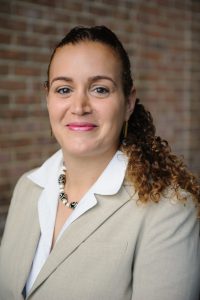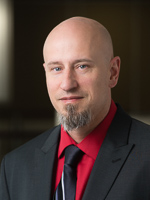
The University of Alabama Faculty Senate’s Diversity, Equity and Inclusion Committee is seeking to create new affinity groups to help UA faculty, staff and graduate students feel more welcome, comfortable and understood.
“The whole affinity group movement started last year and really kicked off this year with the idea of creating an atmosphere where different people of different cultures, backgrounds, religions and underrepresented minorities will feel more comfortable coming to Alabama,” said Mirit Eyal-Cohen, a professor of law at the UA School of Law and a co-chair of the Faculty Senate Diversity, Equity and Inclusion Committee.
“The ease of recruiting faculty and graduate students as well as retaining them could be improved by having affinity groups that make them feel safe and where they can ask questions of people who they self-identify with.”
Eyal-Cohen said several affinity groups already exist at UA such as the Black Faculty and Staff Association for black faculty and staff, and the Capstone Alliance for LGBTQ+ faculty, staff and graduate students.
But now there’s an opportunity for more affinity groups to be officially added to the Capstone and the Faculty Senate’s DEI Committee is willing and available to help with that process.

“If you want to form a group, we’re here as a resource to help you do that as much as we can,” said Dr. Ignacio F. Rodeño, associate professor of Spanish, Latina/o and Latin American Studies and a co-chair of the Faculty Senate DEI Committee.
“I’m from Spain and there are those who may not go through the same issues that I’m going through but they’re subject to what I go through. For faculty, staff and graduate students from certain parts of the world who have had issues, joining an affinity group can help you deal with things that go beyond campus culture. It can help you cope.”
New affinity groups don’t have to be based on race, country of origin, sexual orientation or gender. They can be based on any identification.
Dr. Michael Callihan, an assistant professor of nursing who is a member of the Faculty Senate DEI Committee, said as a male military veteran in the woman and civilian-dominated field of nursing, he hasn’t felt like he’s belonged. He said having an affinity group within the field of nursing for those like himself would go a long way in helping him feel accepted.
“It’s very hard when you’re not really accepted into the group and you’re walking on eggshells all the time,” he said. “It’s not a point of being directly singled out, it’s just not fitting in. Creating affinity groups or being part of them gives hope that there are people like you on campus that you can talk with.”

Eyal-Cohen said the DEI Committee can provide a charter and formalized process to anyone interested in forming an affinity group as well as be a resource in any other way it can. Graduate students are welcome to join as well based on the current affinity groups model.
“We just want people to know that there’s a process, a system,” Rodeño said. “There are affinity groups, you can create your own and we’ll help you do it. If there is an interest, we are interested.”
To inquire about starting an affinity group, contact Affinity Groups at affinity@ua.edu.
Contact
Jamon Smith, Strategic Communications, jamon.smith@ua.edu, 205/348-4956
Source
Mirit Eyal-Cohen, affinity@ua.edu
